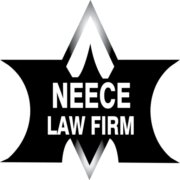Best Commercial Real Estate Lawyers in North Carolina
Share your needs with us, get contacted by law firms.
Free. Takes 2 min.
Free Guide to Hiring a Real Estate Lawyer
Or refine your search by selecting a city:
List of the best lawyers in North Carolina, United States
About Commercial Real Estate Law in North Carolina, United States
Commercial real estate law in North Carolina covers the legal framework governing properties used for business purposes such as office buildings, shopping centers, warehouses, apartment complexes, and hotels. The field encompasses transactions like buying, selling, leasing, development, financing, and zoning of commercial properties. North Carolina features a unique mix of urban and rural markets, and its real estate laws are influenced by both statewide statutes and local ordinances. Understanding the legal landscape is crucial for protecting your investment and ensuring compliance at each stage of a commercial real estate transaction.
Why You May Need a Lawyer
Engaging a lawyer for commercial real estate matters in North Carolina is often essential due to the complexity and high stakes involved. Common situations where you may require legal help include:
- Drafting, reviewing, or negotiating purchase agreements, leases, or sales contracts
- Conducting due diligence, such as title searches and addressing liens or encumbrances
- Handling zoning or land use issues and securing appropriate permits
- Assistance with financing arrangements and resolving disputes with lenders
- Guidance with property development, easements, or right-of-way matters
- Resolving tenant-landlord disputes related to commercial leases
- Navigating environmental regulations and liability issues
- Assistance with property tax appeals or assessments
- Representation in case of litigation or arbitration related to commercial properties
Having an attorney ensures legal compliance, reduces risks, and helps you achieve favorable outcomes during negotiations or disputes.
Local Laws Overview
Commercial real estate transactions in North Carolina are governed by a mix of state statutes, regulations, and local ordinances. Here are some key legal aspects:
- North Carolina is a “buyer beware” state, meaning due diligence is critical, and sellers have limited disclosure obligations
- Real estate closings must be supervised by a licensed North Carolina attorney, not just managed by a title company
- Contracts must be in writing to be enforceable under the Statute of Frauds
- Zoning and land use are controlled by local city or county agencies, with varying requirements and approval processes
- State environmental laws may affect development projects, including wetlands protection and hazardous substance regulations
- Landlord-tenant relations for commercial properties differ significantly from residential laws, with more freedom to negotiate terms
- Property taxes are levied by county assessors and may be appealed locally
- Mechanics liens can be filed by contractors or suppliers who have not been paid for work on the property
Understanding these laws and their implications can help avoid costly mistakes and ensure a smooth transaction.
Frequently Asked Questions
What is considered commercial real estate in North Carolina?
Commercial real estate refers to properties used for business purposes, such as offices, retail spaces, warehouses, multi-family apartment complexes, industrial properties, and land designated for economic development activities.
Do I need a lawyer to purchase or lease commercial real estate in North Carolina?
Yes, North Carolina law requires a licensed attorney to manage real estate closings, and legal counsel is highly recommended for reviewing or drafting commercial leases or purchase agreements.
How is due diligence conducted in a commercial real estate transaction?
Due diligence in North Carolina includes reviewing title records, zoning regulations, environmental assessments, building inspections, and financial documents related to the property. Your attorney will coordinate these investigations.
What disclosures are required from sellers of commercial property?
North Carolina commercial transactions typically involve fewer required disclosures than residential sales. Buyers must conduct their own investigations, as the state follows the “buyer beware” principle.
How are commercial leases different from residential leases in North Carolina?
Commercial leases are more customizable and have fewer statutory protections for tenants. The terms are heavily negotiated and can cover issues like maintenance obligations, rent increases, and permissible property uses.
What happens if there is a zoning issue with a commercial property?
Zoning disputes are handled by local zoning boards. If the existing or intended use of a property does not conform with local zoning ordinances, you may need a variance or special use permit, which involves an application and a hearing process.
Can I appeal property tax assessments on my commercial property?
Yes, commercial property owners can appeal property tax assessments through their local county assessor's office if they believe their property has been overvalued.
What is a mechanics lien, and how does it affect commercial property?
A mechanics lien is a legal claim filed by contractors or suppliers who have not been paid for labor or materials provided to the property. This lien must be resolved, typically through payment or legal action, before the property can be sold or refinanced.
Are environmental regulations a concern in commercial real estate deals?
Environmental regulations can impact commercial properties, especially if there is potential contamination or wetlands on-site. Legal counsel can guide you through necessary assessments and compliance measures.
What steps should I take if facing a dispute with a commercial landlord or tenant?
Begin by reviewing your lease agreement and try to resolve issues through negotiation. If matters cannot be settled, contact a lawyer experienced in commercial real estate disputes to assess your legal options.
Additional Resources
For more information or assistance with commercial real estate matters in North Carolina, consider the following organizations:
- North Carolina Real Estate Commission - Issues licenses and regulates real estate agents and transactions
- North Carolina Bar Association - Offers lawyer referral services and legal education resources
- Local County Register of Deeds Offices - Maintains property records and real estate documents
- North Carolina Department of Environmental Quality - Oversees environmental regulations affecting land use and development
- Local zoning and planning departments - Provides zoning maps, land use regulations, and permit information
Next Steps
If you need legal assistance related to commercial real estate in North Carolina, start by gathering all relevant information and documents tied to your matter, such as contracts, communications, and property records. Consult with a qualified attorney who specializes in commercial real estate law in North Carolina. Many law firms offer initial consultations where you can discuss your situation, understand your rights, and plan your next steps. Make sure to clearly communicate your goals and concerns to your attorney, and be prepared to follow their advice regarding negotiations, document review, or legal filings. Taking prompt and informed action can help protect your interests in any commercial real estate transaction or dispute.
Lawzana helps you find the best lawyers and law firms in North Carolina through a curated and pre-screened list of qualified legal professionals. Our platform offers rankings and detailed profiles of attorneys and law firms, allowing you to compare based on practice areas, including Commercial Real Estate, experience, and client feedback.
Each profile includes a description of the firm's areas of practice, client reviews, team members and partners, year of establishment, spoken languages, office locations, contact information, social media presence, and any published articles or resources. Most firms on our platform speak English and are experienced in both local and international legal matters.
Get a quote from top-rated law firms in North Carolina, United States — quickly, securely, and without unnecessary hassle.
Disclaimer:
The information provided on this page is for general informational purposes only and does not constitute legal advice. While we strive to ensure the accuracy and relevance of the content, legal information may change over time, and interpretations of the law can vary. You should always consult with a qualified legal professional for advice specific to your situation.
We disclaim all liability for actions taken or not taken based on the content of this page. If you believe any information is incorrect or outdated, please contact us, and we will review and update it where appropriate.
Browse commercial real estate law firms by city in North Carolina
Refine your search by selecting a city.













